In a speech before the 2015 Saban Forum, Secretary of State John Kerry issued an impassioned appeal to Israelis and Palestinians to renew efforts to advance the cause of peace, warning that “unless significant efforts are made to change the dynamic—and I mean significant—it will only bring more violence, more heartbreak, and more despair.”
Kerry’s remarks tackled the full range of regional issues from ISIS to Iran, emphasizing that the guiding principle of U.S. strategy in the region is to ensure “the builders and the healers throughout the region have the chance that they need to accomplish their tasks.” And in a brief, acerbic aside, he observed that “yes, there is a strategy,” adding: “I know the criticisms.” He lamented that “the negative sells and the negative polarizes and the negative creates a self-selecting audience. But it doesn’t mean that that’s wisdom.” Citing efforts in Tunisia, Libya, Yemen, and Syria, Kerry outlined U.S. efforts to advance prosperity and stability throughout the region.
An injection of urgency into Israeli-Palestinian peace process
The core of Kerry’s speech, however, centered on the Israeli-Palestinian conflict, and his remarks seemed aimed at shifting the onus for progress toward peace onto the parties themselves and marking a reluctant denouement to the Obama administration’s assiduous efforts to broker an agreement. Indeed, his remarks were interpreted by some in the audience as an implicit abdication by one of the most indefatigable advocates of American leadership in mediating a resolution to the conflict.
And the secretary offered a stark warning to the Israelis and Palestinians about the risks of the current course. After calling for an end to the latest spike in violence in Israel, Kerry framed his comments on the peace process as a discussion of the “difficult questions and hard choices” facing both Israelis and Palestinians.
[T]he secretary offered a stark warning to the Israelis and Palestinians about the risks of the current course.
Secretary Kerry spoke to the sense of hopelessness about the conflict that has overtaken both sides. “The Israeli and Palestinian people deserve better,” Kerry said. However, he implored his audience of influential Israelis to take risks in order to break the impasse on the grounds that the status quo is likely to get worse, saying: “Both sides need to act in the long-term best interests of their people, not as a kind of concession. It is not a concession to be doing things that make you safer.”
Kerry devoted much of his speech to concerns about the continued viability of the Palestinian Authority (PA), saying that “there are valid questions as to how long the PA will survive if the current situation continues. Mark my words.” He underscored that Palestinian leaders must do more to prevent such an outcome precisely because their own people would suffer most from the PA’s demise. But he also detailed what he described as devastating “financial and strategic costs” for Israel: the billion dollars in international assistance that currently flows to the PA and “the heightened risk that chaos, lawlessness, and desperation can allow terrorists and extremists to take hold of and fill the vacuum.”
Kerry argued that the uncertainty about the PA’s future derives from ambivalence and even antagonism among some Israeli leaders to the two-state solution. He contended that any alternative to the establishment of a sovereign Palestinian state, living in peace and security alongside Israel, would jeopardize Israel’s essence as a Jewish and democratic state. Kerry pressed the implications of discarding the two-state framework for both Palestinians and Israelis, invoking a statement by Israeli statesman Shimon Peres that “anyone who rejects the two-state solution won’t bring a one-state solution; they will instead bring one war, not one state.”
Kerry has personally invested tremendous time and energy in trying to broker a pathway to peace between the parties, and there were moments in his speech in which his frustration at his inability to make progress was evident. He alluded to U.S. efforts, spearheaded by two Brookings colleagues, Martin Indyk and General John Allen, to devise plans for addressing Israel’s security concerns related to peace deal, noting: “Believe me, there are all kinds of security and other kinds of steps that could be taken, and buffers and guarantees and oversight and cooperation. Countless answers if you want to find them.”
The secretary seemed determined to re-inject a sense of urgency into the protracted standoff between Israelis and Palestinians. “We can’t come to a forum like this…and maintain the norms of diplomacy and pretend,” Kerry said, adding that “this is not an abstract issue that you can put off for some distant day.”
It is too soon to tell if Secretary Kerry’s appeal generated any meaningful traction among Israelis or Palestinians, but he faces an uphill battle. As my colleague Natan Sachs has explained in an important Foreign Affairs essay published in October, the “strategic pessimism” that characterizes Israeli leaders appears to be shared by much of the population. Sachs writes that “with Israel having failed to achieve normalcy through negotiations, unilateral withdrawals, or brute force, most Israelis have concluded that normalcy is not theirs to be had. They need to brace themselves for a long fight and avoid the temptations of grand plans.” Sachs offers alternative policy recommendations for channeling American diplomatic energies, as well as for Israeli and Palestinian decision-makers in his article, which can be read in full here.
“[T]his is not an abstract issue that you can put off for some distant day.”
Strangling ISIS and its networks
Kerry underscored the importance of diplomatic efforts to end the Syrian civil war, noting that military efforts will not succeed in ending the conflict on its own. These options, combined with a nationwide ceasefire in Syria, would isolate the terrorists. He defended his diplomatic efforts on Syria, which have recently expanded to include Russia, Iran, Saudi Arabia and elements of the Syrian opposition, insisting that “every single country consistently from the beginning of the Syrian revolution has said there is no military solution to this; it has to be a political one. And if you’re not looking for it, you’re certainly not going to find it.”
Kerry had sharp words for Da’esh (ISIS), describing the group as: “a mixture of killers and kidnappers, smugglers, thieves, and apostates who have hijacked a religion and combined a medieval thinking with modern weapons to wage an especially savage brand of war.”
Iran must live up to its commitments under the nuclear deal
The issue of Iran looms large over the U.S.-Israeli relationship. He argued that the Iran deal is central to the broader U.S. strategy in the region because “if builders are going to have the opportunity to succeed, then they have to be shielded as much as possible from the sources of imminent and potential danger.”
Secretary Kerry assured the audience that the United States is “not blind to your concerns” and he stressed that the interim accord provides a credible track record of Iranian compliance and that the verification measures in the final agreement provide the international community with unprecedented insight on Iran’s nuclear activities and, by extension, its intentions. We will know if Iran tries to break out,” Kerry maintained. “I’m not telling you they might not, but I’m telling you we’ll know, and we have the same option then we had now.”
“We will know if Iran tries to break out…and we have the same option then we had now.”
He stressed that the nuclear deal was not intended as a vehicle for initiating any broader cooperation with Iran on regional concerns. “It wasn’t part of some opening the door…or hope or some speculation about behavior. It was the right thing to do…because any effort to roll back Iran’s behavior, my friends, is a heck of a lot easier if they don’t have a nuclear weapon.”
See the full text and video of Secretary Kerry’s remarks. The webcasts and transcripts of other sessions at the 2015 Saban Form, including remarks by Israeli Defense Minister Moshe Ya’alon; a discussion with former National Security Adviser Stephen Hadley and Israeli Member of Knesset Yair Lapid; and a speech by former Secretary of State Hillary Clinton are available on the Forum’s home page.
Sloane Speakman contributed to this post.
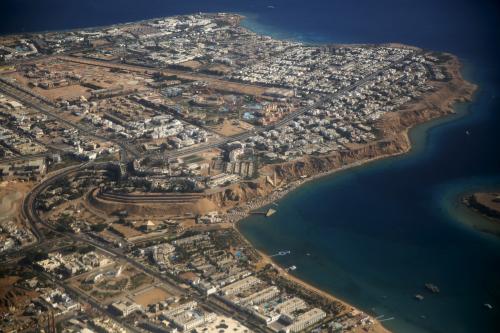
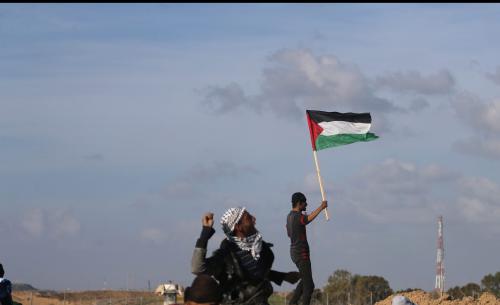
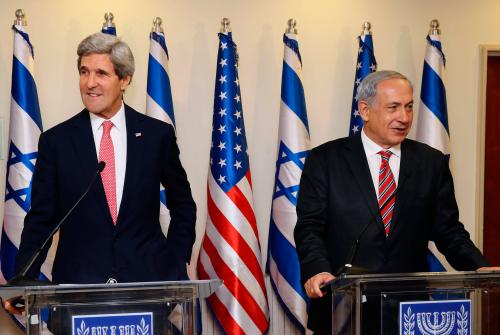
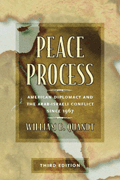
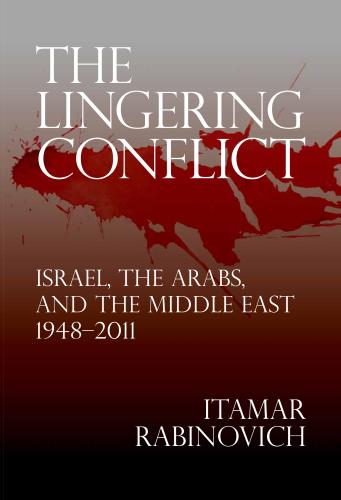
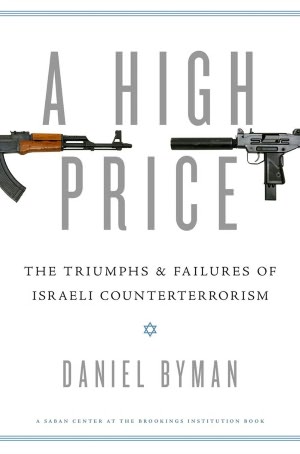




Commentary
Secretary of State John Kerry talks peace process, ISIS, and Iran at the 2015 Saban Forum
December 7, 2015